19, October 2024
Catholic population shrinks in Europe, rises in Africa 0
The Catholic population in Europe fell by nearly half a million people in 2022 but continued to increase in every other part of the world, according to data released by the Vatican this week.
According to the Vatican numbers, released by the Holy See’s Fides News Agency, the Catholic population in Europe was just under 285.6 million people at the end of 2022. That is about 474,000 fewer Catholics than was reported in 2021.
The Catholic population decline coincided with a total population reduction on the continent, which recorded a net loss of 517,000 people living in Europe over the year.
Catholics still made up about 39.5% of Europe’s population in 2022, which is an 0.08% decline, according to the Vatican. The Catholic population decline in Europe has been a consistent phenomenon for several years.
In spite of the reduction in Europe, the global Catholic population is still on the rise. At the end of 2022, the Catholic population reached nearly 1.39 billion people thanks to an increase of more than 13.7 million Catholics.
The data showed that about 17.7% of the world’s population was Catholic, which was an increase of 0.03%.
The Catholic population in Africa surpassed 272.4 million people in 2022 after seeing a rise of more than 7.3 million people — the largest increase of any continent. About 19.7% of Africa was Catholic in 2022, which was an increase of 0.32% from the previous year — the largest increase in Catholic representation as a percentage of population.
North and South America recorded more than 666.2 million Catholics in 2022 following a rise of more than 5.9 million Catholics. The number of Catholics in Asia surpassed 154.24 million, which was an increase of about 889,000. There were nearly 11.11 million Catholics in Oceania after a rise of about 123,000.
Apart from Europe, Asia was the only region to see a decline in Catholics as a percentage of the total population, with a reduction of 0.02%.
Priest shortage worsens globally, nuns decline, deacons increase
The total number of Catholics priests in the world declined for the fifth straight year, but some regions are seeing an increase.
At the end of 2022, there were about 407,730 priests in the Catholic Church, which was a net decline of about 142 priests. Globally, this means there is one priest for every 15,682 Catholics.
The worst reduction of priests was in Europe, which dropped by 2,745. There was also a decrease of 164 priests in the Americas and a loss of 69 priests in Oceania.
However, an increase in 1,676 priests in Africa and 1,160 priests in Asia helped soften the blow of the overall decline in priests.
Similarly, the number of major seminarians went down by more than 1,400 from 2021 to 2022. This includes a decrease of 921 in the Americas, 859 in Europe, and 375 in Asia.
Africa saw the largest increase of 726 seminarians and Oceania had a small increase of 12 seminarians. The number of minor seminarians went down by 553.
The number of women religious fell slightly below 600,000 in 2022 with a total decline of 9,730. This was mostly led by a decrease of more than 7,000 in Europe and more than 1,350 in the Americas.
There was also a decline of about 225 in Oceania. However, the number of women religious increased by more than 1,350 in Africa and by about 74 in Asia.
Alternatively, the number of permanent deacons increased globally by 974. This includes an increase of 267 in Europe, 15 in Asia, and one in Africa. The number declined by 308 in the Americas and one in Oceania.
The number of permanent diocesan deacons went up by 960, with an increase of 697 in the Americas, 255 in Europe, and nine in Asia, with a decrease of one in Oceania. The total number of religious permanent deacons increased overall globally by 14 to 615.
Source: aciafrica
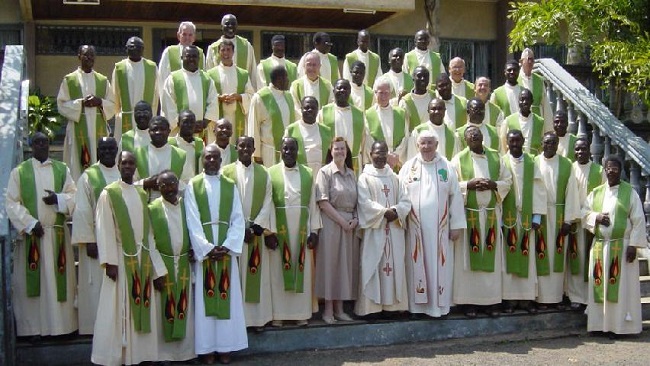

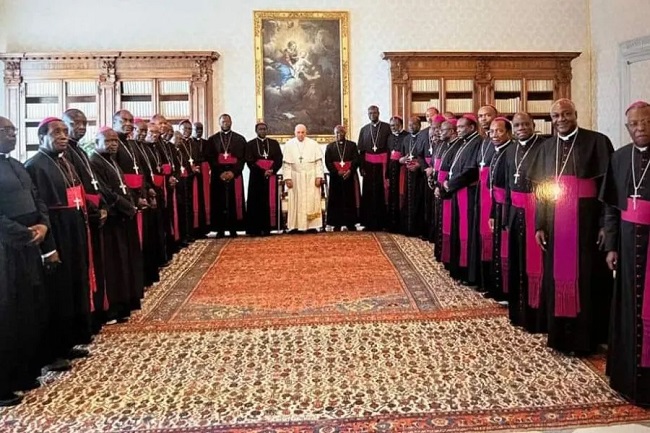

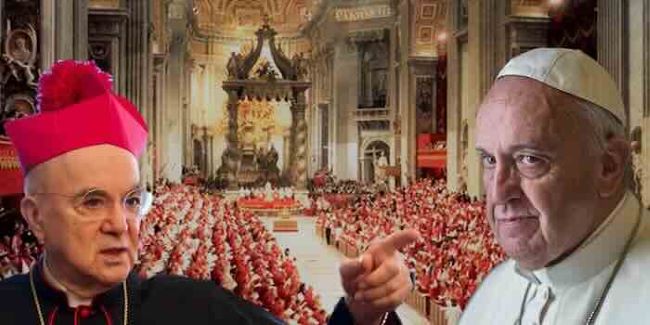


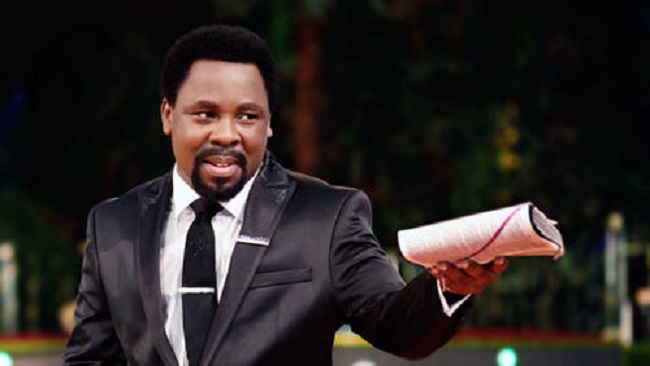












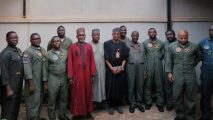




25, October 2024
Archbishop Andrew Nkea re-elected to the Ordinary Council of the Synod of Bishops in Rome 0
Synod delegates have elected new members of the Ordinary Council of the General Secretariat of the Synod of Bishops.
At the 15th General Congregation of the Synod of Bishops on Wednesday, delegates elected the new members of the Ordinary Council of the General Secretariat of the Synod.
Pope Francis made a modification to the current Instruction governing the Assembly’s work, increasing the total number of members to 17, according to a statement released by the Synod Secretariat.
Of these, twelve were elected in the afternoon from among the diocesan/eparchial bishops or equivalents who are part of the Assembly: 1 from the Eastern Catholic Churches, 1 from Oceania, and 2 each from North America, Latin America, Europe, Africa, and Asia.
In addition to these, the Pope will appoint 4 members, as well as, in due course, the head of the Dicastery of the Roman Curia responsible for the theme of the next Synod.
As stated in the Apostolic Constitution Episcopalis Communio (n. 24, 1-3), the Ordinary Council of the General Secretariat is responsible for preparing and implementing the Ordinary General Assembly.
Members of the Ordinary Council begin their term at the end of the Ordinary General Assembly that elected them, they are members of the next Ordinary General Assembly, and their mandate concludes when that Assembly is dissolved.
Chaired by the Holy Father, the Council is an essential part of the General Secretariat.
The new Ordinary Council will play a key role both in implementing this synodal process on synodality and in preparing for the next Synod.
Cardinal Mario Grech, in wishing the newly elected members well in their work, also expressed gratitude to the outgoing members for their valuable collaboration in bringing the current synodal process to fruition.
The elected members are:
From the EASTERN CATHOLIC CHURCHES
His Beatitude Youssef ABSI, Patriarch of Antioch of the Greek Melkites, Head of the Synod of the Greek Melkite Catholic Church
From OCEANIA
His Excellency Most Rev. Msgr. Timothy John COSTELLOE, S.D.B., Archbishop of Perth (Australia)
From NORTH AMERICA
His Excellency Most Rev. Msgr. Daniel Ernest FLORES, Bishop of Brownsville (United States of America)
His Excellency Most Rev. Msgr. Alain FAUBERT, Bishop of Valleyfield (Canada)
From LATIN AMERICA
His Eminence Most Rev. Card. Luis José RUEDA APARICIO, Archbishop of Bogotá (Colombia)
His Excellency Most Rev. Msgr. José Luis AZUAJE AYALA, Archbishop of Maracaibo (Venezuela)
From EUROPE
His Eminence Cardinal Jean-Marc AVELINE, Archbishop of Marseille (France)
His Excellency Msgr Gintaras GRUŠAS, Archbishop of Vilnius (Lithuania)
From AFRICA
Cardinal Dieudonné NZAPALAINGA, C.S.Sp., Archbishop of Bangui (Central African Republic)
H.E. Msgr. Andrew FUANYA NKEA, Archbishop of Bamenda (Cameroon)
From ASIA
His Eminence Cardinal Filipe Neri António Sebastião DO ROSÁRIO FERRÃO, Archbishop of Goa and Damão (India)
His Excellency Msgr. Pablo Virgilio S. DAVID, Bishop of Kalookan (Philippines)
To this list, Pope Francis will appoint 4 other members.
Source: Vatican News